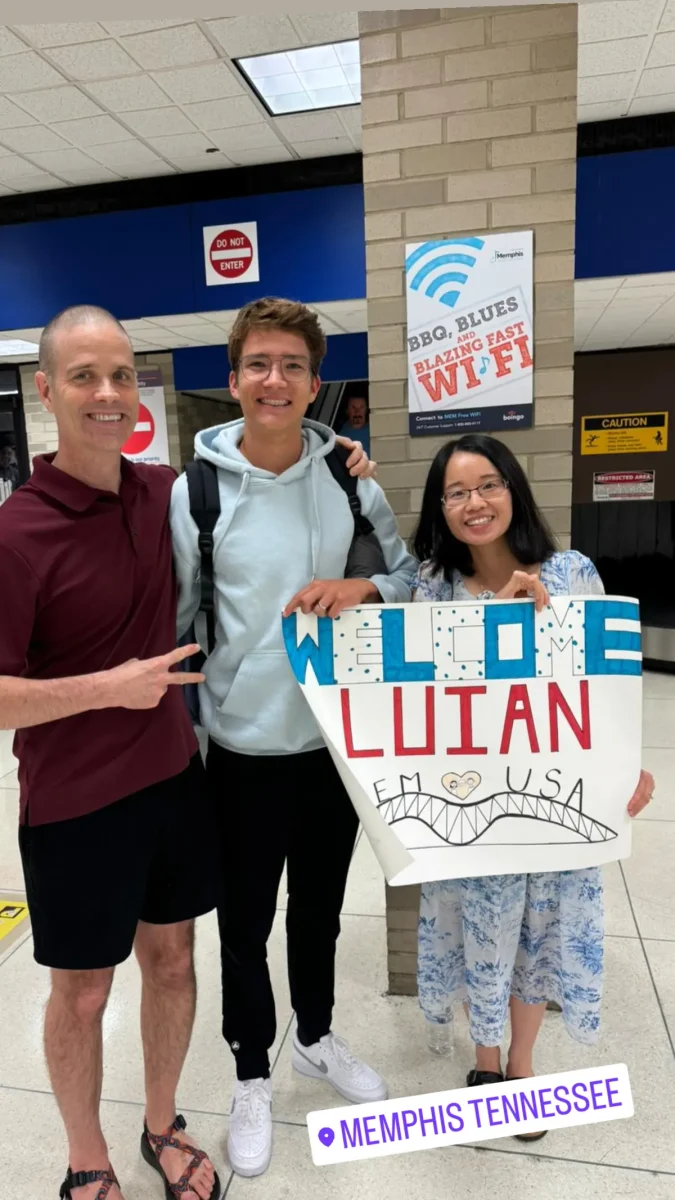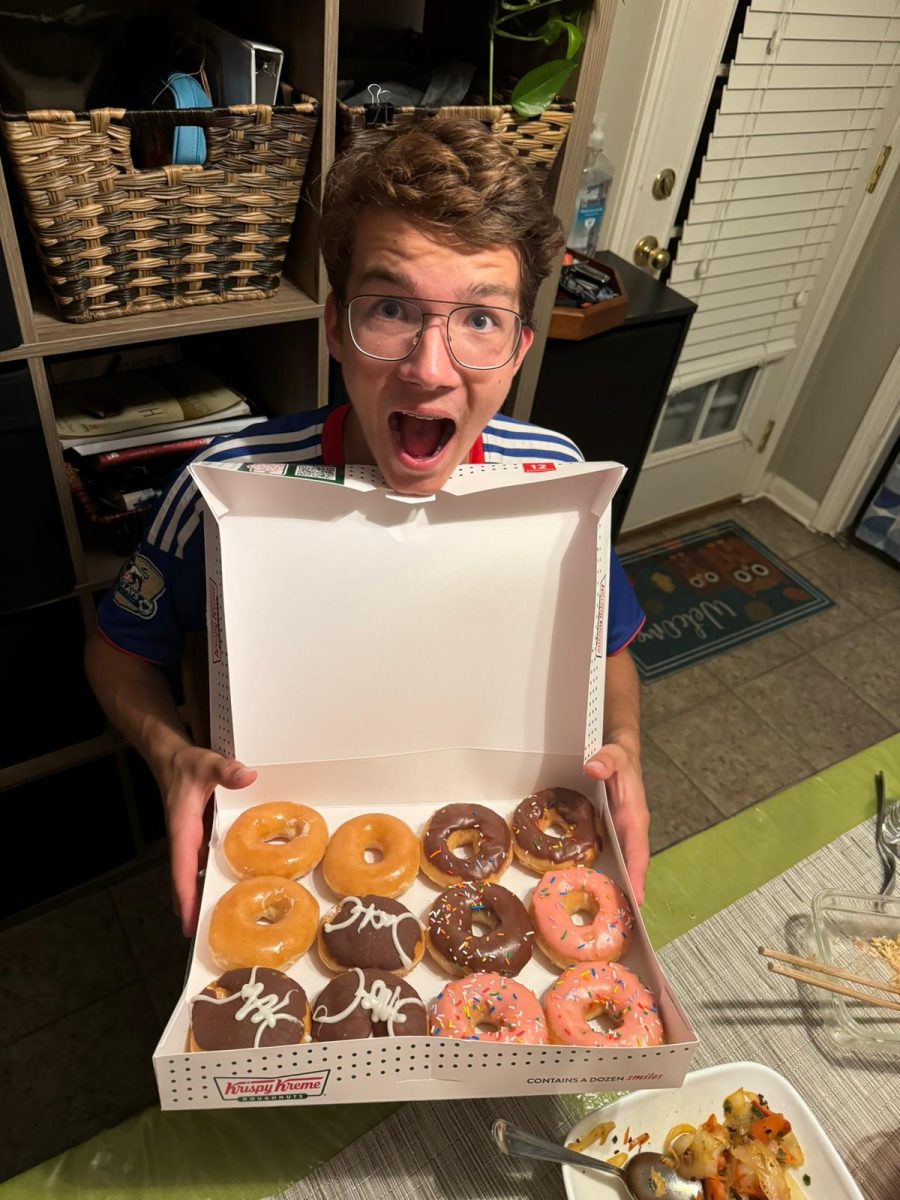Beep! Beep! Be — Imagine waking up at 5:00 a.m. when your friends back home are getting dismissed from school. This is the new reality for Luian Stiegler (11), as his days in Memphis have just begun.
From Stuttgart, Germany, Stielger is participating in the Congress-Bundestag Youth Exchange (CBYX) program as an exchange student for the 2024–2025 school year. Through CBYX, the program allows secondary school students from Germany to engage in American culture — and vice versa — on a full-ride scholarship as it aims to promote foreign relationships through cultural and language immersion. After learning about the program in the spring of 2023, Stiegler decided to apply.
“I saw [the program] as a good opportunity, especially because … the organization pays [for] everything,” Stiegler said. “I’ve also always wanted to do an exchange here [in America, both] to improve my English and get context in different countries. It’s good for life experience to do [the exchange program] … I think that the USA has everything … [it is the] country where everyone wants to go to [at least] once in their life. So I thought, ‘let’s go to America.’”
Although he has visited several European countries, this experience will be Stiegler’s first trip to the USA. He will stay in Memphis as an exchange student from August until June when he will return to Germany. While excited about the opportunity, being away from home comes with its own challenges.
“I think [my friends and family] are very happy that I got the opportunity and [that] I can be in the USA for a year, but [I think] they are also sad that I am not with them; it’s difficult — especially when you are younger,” Stiegler said.
Although Stiegler studied English before coming to America, adjusting to social or cultural differences, such as the language barrier and the American education system, can take some time. For example, despite taking Algebra II back in Germany, he found that the class here in America applied different methods compared to what he was used to.
“I don’t have a least favorite class, but probably math — not because I don’t like math, but because it is so much different to what I learned in Germany,” Stiegler said. “[For example], I also learned [functions and parabolas] in Germany at a high level and it was really difficult [there], but what we do in America is so different … I can’t explain it. It is the same topic, but [you learn] different things.”
When entering the States, Stiegler recognized that as an exchange student from Germany, some of his classmates might wonder if he would fit the mold of what they believed to be a “stereotypical German.”
“[CBYX] offers you a week where you learn about [the United States] … and they said that you have to be aware that many Americans may ask me, as a German, [some] funny questions,” Stiegler said. “[I have been asked] if we have phones in Germany, and yes, we do have phones. [Another] one, I think is really funny, is if we get beer in school at lunch, and no, we don’t. We do drink a lot, but not in school.”
Coming from a culture that is not used to small talk, Stiegler experienced a bit of culture shock when he first came to the USA. One thing that stood out to him was how friendly and open Americans are compared to people in Germany.
“One culture shock is that many [Americans] are very kind,” Stiegler said. “When I have been to the grocery store, the people were like ‘hi, how are you?’ … In Germany, they aren’t mean, but nobody will talk to you [if they do not need to] … I think that [Germans] are not mean but … when Americans come to Germany, they think that Germans are mean because they don’t talk to you — but it is not common [to have small talk].”
While Stiegler wants to get involved in extracurriculars like the Robotics, Pickleball and Soccer Club at White Station High School (WSHS), his workload has made it difficult for him to be currently involved. Adapting to an English-speaking environment has required more time out of his day to complete his schoolwork.
“What you do in an hour, [might] take [me] three hours because everything has to be translated in my brain, and some words I don’t even know, [so] the sentence makes no sense,” Stiegler said. “[So], everything takes a little bit more time. Right now, I [am] concentrat[ing] on doing well in school, and I think if I get in a rhythm, I’ll also join [some] clubs and sports.”
Despite the challenges of adapting to a new country and school, he has been able to navigate the school year thanks to the students and community at WSHS.
“Every person that I met was super friendly, super nice and very kind,” Stiegler said. “[During] the first [few] days, they showed me which classrooms I had to go [to], they help me with the assignments … They [would] say, ‘tomorrow, we have a test; study for this and that,’ and they help[ed] me a lot. I think the people are the best thing [about] White Station.”





































